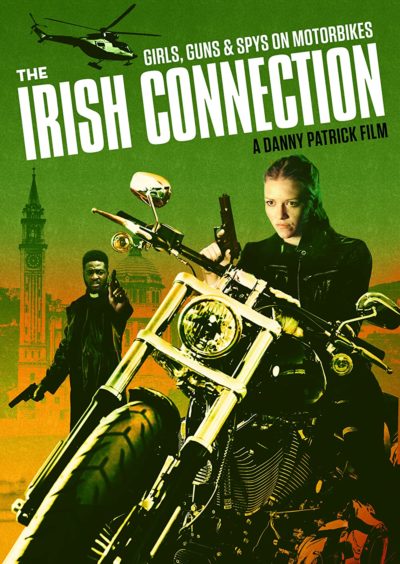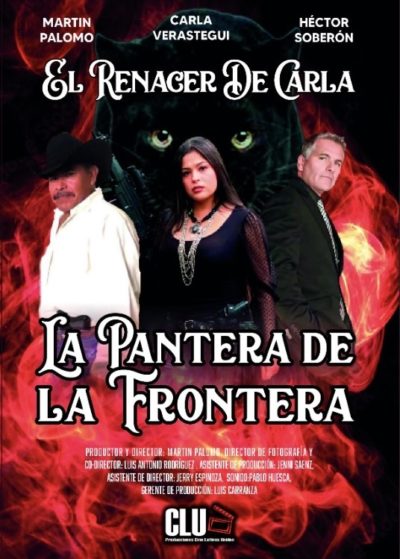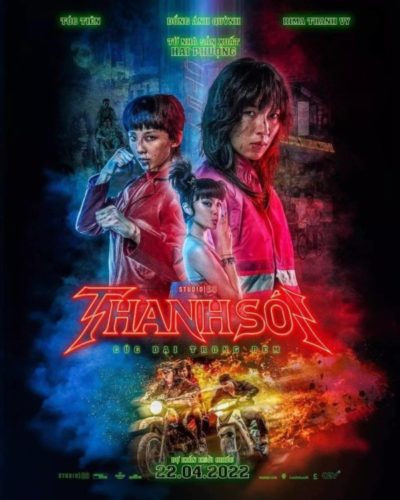★★
“Sink or swim.”
 This is the story of Syrian sisters Yusra Mardini and her sister Sarah, played by real-life sisters Nathalie and Manal Issa. Growing up, they were trained by their father, a professional swimmer himself, and had the goal of reaching the Olympics for their country. The (still ongoing) Syrian Civil War led to the sisters leaving their homeland, and this is mostly the story of their journey, through Turkey, across the Mediterranean in a very flimsy dinghy to Greece, then across Europe to Germany. It’s a journey fraught with peril, on which predators looking to scam migrants (or worse), lurk at every turn. However…
This is the story of Syrian sisters Yusra Mardini and her sister Sarah, played by real-life sisters Nathalie and Manal Issa. Growing up, they were trained by their father, a professional swimmer himself, and had the goal of reaching the Olympics for their country. The (still ongoing) Syrian Civil War led to the sisters leaving their homeland, and this is mostly the story of their journey, through Turkey, across the Mediterranean in a very flimsy dinghy to Greece, then across Europe to Germany. It’s a journey fraught with peril, on which predators looking to scam migrants (or worse), lurk at every turn. However…
I don’t typically like to get political here, but when a film explicitly does, I will go there. I have every sympathy for refugees, who want safety. But once you leave your home country and reach a safe destination, that’s it. If you then decide to move on – making a beeline for a country where lax immigration laws let you pull the rest of your family with you – you’re not a refugee, you’re an economic migrant. My sympathy for you drops a whole order of magnitude. It’s like if your house burns down, I feel sorry for you. It doesn’t give you the right to move into the neighbourhood’s swankiest residence. Most of the film’s attempts to pull on my heartstrings failed due to this. As soon as the sisters left the Turkish beach, they were 100% responsible for putting themselves back in danger.
Rant over. What about the film? It’s a bit of a mixed bag. Having sisters playing sisters definitely works. Especially at that age, this is the kind of relationship which is hard to simulate for teenage actors. There’s a genuineness here, for obvious reasons, which makes the family devotion at the film’s core, easy to see and appreciate. Less successful is the apparent random switching between languages. Many conversations occur in a hodge-podge of English and Arabic. While I can’t speak to the authenticity of it, as a viewer, it was jarring to switch repeatedly from listening to reading subtitles. I ended up basically tuning out the dialogue and sticking with the subs.
I appreciate the necessity of bending the facts to fit a cinematic narrative, but this probably goes too far. It’s one thing to have Yusra overhear snark from other competitors about how she doesn’t deserve to be there. But maybe avoid this when the movie then omits to mention the only swimmers she beat were, basically, other charity cases? The Olympic Selection Time was 60.80 seconds. Mardini finished in 69.21, and even her personal best is more than five seconds off the OST. The awkward truth is, she really did not deserve to be there, but few are greater at virtue-signalling than the IOC. It all feels like there are probably better refugee stories which could have been told. All the gloss this applies to its tale. can’t disguise that it is uncomfortably close to well-made propaganda.
Dir: Sally El-Hosaini
Star: Nathalie Issa, Manal Issa, Ahmed Malek, Matthias Schweighöfer





 The first
The first  Carla (Williams) and her boyfriend Daniel (Davis) are all set for a nice weekend in the mountains. Unfortunately, the snowmobile trip runs into difficulty, in particular coming in the shape of a pair of cartel assassins. What, you may ask, are a pair of cartel assassins doing half-way up a snowy mountain in [I’m guessing] the Colorado Rockies? Good question. I’m glad you asked. They are after a robber who made the ill-advised decision to rob a bar which was a front for their organization. He’s now hiding out, half-way up the aforementioned snowy mountain, in the belief he’s safe. Turns out not to be the case.
Carla (Williams) and her boyfriend Daniel (Davis) are all set for a nice weekend in the mountains. Unfortunately, the snowmobile trip runs into difficulty, in particular coming in the shape of a pair of cartel assassins. What, you may ask, are a pair of cartel assassins doing half-way up a snowy mountain in [I’m guessing] the Colorado Rockies? Good question. I’m glad you asked. They are after a robber who made the ill-advised decision to rob a bar which was a front for their organization. He’s now hiding out, half-way up the aforementioned snowy mountain, in the belief he’s safe. Turns out not to be the case. Mildred Moyer (Chamberlain) has a problem, and it’s as plain as the nose on her face. Actually, it
Mildred Moyer (Chamberlain) has a problem, and it’s as plain as the nose on her face. Actually, it  To be honest, I enjoyed this a good bit more than the rating above would indicate – probably another star or so. But I have a particular tolerance for cinema with rough edges, which I know not everyone will share. This is such an entity. I can’t really recommend it, since most people won’t be able to get past the micro-budget anesthetics, which the film rarely bothers even to try and hide. But I could appreciate the obvious passion that went into this. Put it this way, if I had twenty quid with which to make a movie, it could end up looking something like this. Probably not with such a kick-ass poster though.
To be honest, I enjoyed this a good bit more than the rating above would indicate – probably another star or so. But I have a particular tolerance for cinema with rough edges, which I know not everyone will share. This is such an entity. I can’t really recommend it, since most people won’t be able to get past the micro-budget anesthetics, which the film rarely bothers even to try and hide. But I could appreciate the obvious passion that went into this. Put it this way, if I had twenty quid with which to make a movie, it could end up looking something like this. Probably not with such a kick-ass poster though. At times this feels more like a fancy dress party than a film. People dressed up as nuns. People dressed up as clowns. People dressed as priests. This probably isn’t surprising, considering that it feels like Patrick is cosplaying as a film-maker. There’s little or no evidence to indicate he knows how to construct a coherent or interesting narrative. Instead, he proceeds by simply dropping in scenes which, I gueaa, are supposed to be “amusing”, without rhyme or reason. I called Aureille the heroine above, though there’s precious little to make her so. I presumed she is supposed to be the “good guy”, because there are no other credible candidates for that role, so she earns it by default.
At times this feels more like a fancy dress party than a film. People dressed up as nuns. People dressed up as clowns. People dressed as priests. This probably isn’t surprising, considering that it feels like Patrick is cosplaying as a film-maker. There’s little or no evidence to indicate he knows how to construct a coherent or interesting narrative. Instead, he proceeds by simply dropping in scenes which, I gueaa, are supposed to be “amusing”, without rhyme or reason. I called Aureille the heroine above, though there’s precious little to make her so. I presumed she is supposed to be the “good guy”, because there are no other credible candidates for that role, so she earns it by default. Buffalo police officer Megan (Sadeghian) is a highly-skilled cop, but has a crisis of confidence after being involved in the accidental shooting of a colleague. To help get her out of that mindset, partner Jeremy (Johnson) invites Megan on a weekend camping getaway in upstate New York, along with another couple. This goes horribly wrong, after they stumble across the summary execution of a drug-dealer by the local sheriff, Preacher (Kennedy) and his death squad. The four campers are now a problem for Preacher, so he seals off the area, and unleashes a slew of hunters, putting a ten thousand dollar bounty on the head of each target. Of course, you don’t have to be psychic to see it won’t be easy, courtesy of Megan.
Buffalo police officer Megan (Sadeghian) is a highly-skilled cop, but has a crisis of confidence after being involved in the accidental shooting of a colleague. To help get her out of that mindset, partner Jeremy (Johnson) invites Megan on a weekend camping getaway in upstate New York, along with another couple. This goes horribly wrong, after they stumble across the summary execution of a drug-dealer by the local sheriff, Preacher (Kennedy) and his death squad. The four campers are now a problem for Preacher, so he seals off the area, and unleashes a slew of hunters, putting a ten thousand dollar bounty on the head of each target. Of course, you don’t have to be psychic to see it won’t be easy, courtesy of Megan. As the above suggests, I was getting a strong manga influence, in particular from the works of Hayao Miyazaki: it feels like the script could have been something he’d have written on a gloomy Wednesday in January. Feisty teenage heroine? Check? Ecological message? Check. For this takes place after some kind of change in the world, which has left the bulk of the population clinging on to existence by their grubby fingernails, in a world now owned by bizarre flora. Vesper (Chapman) is one such, tending to her paralyzed father (Brake) whose consciousness has been transferred into a drone. She trades with her uncle, Jonas (Marsan), swapping blood for the seeds they need to survive.
As the above suggests, I was getting a strong manga influence, in particular from the works of Hayao Miyazaki: it feels like the script could have been something he’d have written on a gloomy Wednesday in January. Feisty teenage heroine? Check? Ecological message? Check. For this takes place after some kind of change in the world, which has left the bulk of the population clinging on to existence by their grubby fingernails, in a world now owned by bizarre flora. Vesper (Chapman) is one such, tending to her paralyzed father (Brake) whose consciousness has been transferred into a drone. She trades with her uncle, Jonas (Marsan), swapping blood for the seeds they need to survive. There are times when I can look at a failure of a movie, and kinda see how the various elements could have been arranged to better effect. That’s the case here, where a poverty-row, Spanish-language (but made in Texas) production about rape, revenge and narcos, could potentially have worked. Except, it absolutely doesn’t. It’s the story of Carla Mendoza (Verastegui), who happens to be in the wrong place at the wrong time, working for her boss, Pedro Camargo (Palomo), blissfully unaware he is a cartel leader. As a result, she’s arrested, and ends up spending seven years in prison, while daughter Nina is taken care by her grandmother.
There are times when I can look at a failure of a movie, and kinda see how the various elements could have been arranged to better effect. That’s the case here, where a poverty-row, Spanish-language (but made in Texas) production about rape, revenge and narcos, could potentially have worked. Except, it absolutely doesn’t. It’s the story of Carla Mendoza (Verastegui), who happens to be in the wrong place at the wrong time, working for her boss, Pedro Camargo (Palomo), blissfully unaware he is a cartel leader. As a result, she’s arrested, and ends up spending seven years in prison, while daughter Nina is taken care by her grandmother. This is a prequel of sorts to
This is a prequel of sorts to